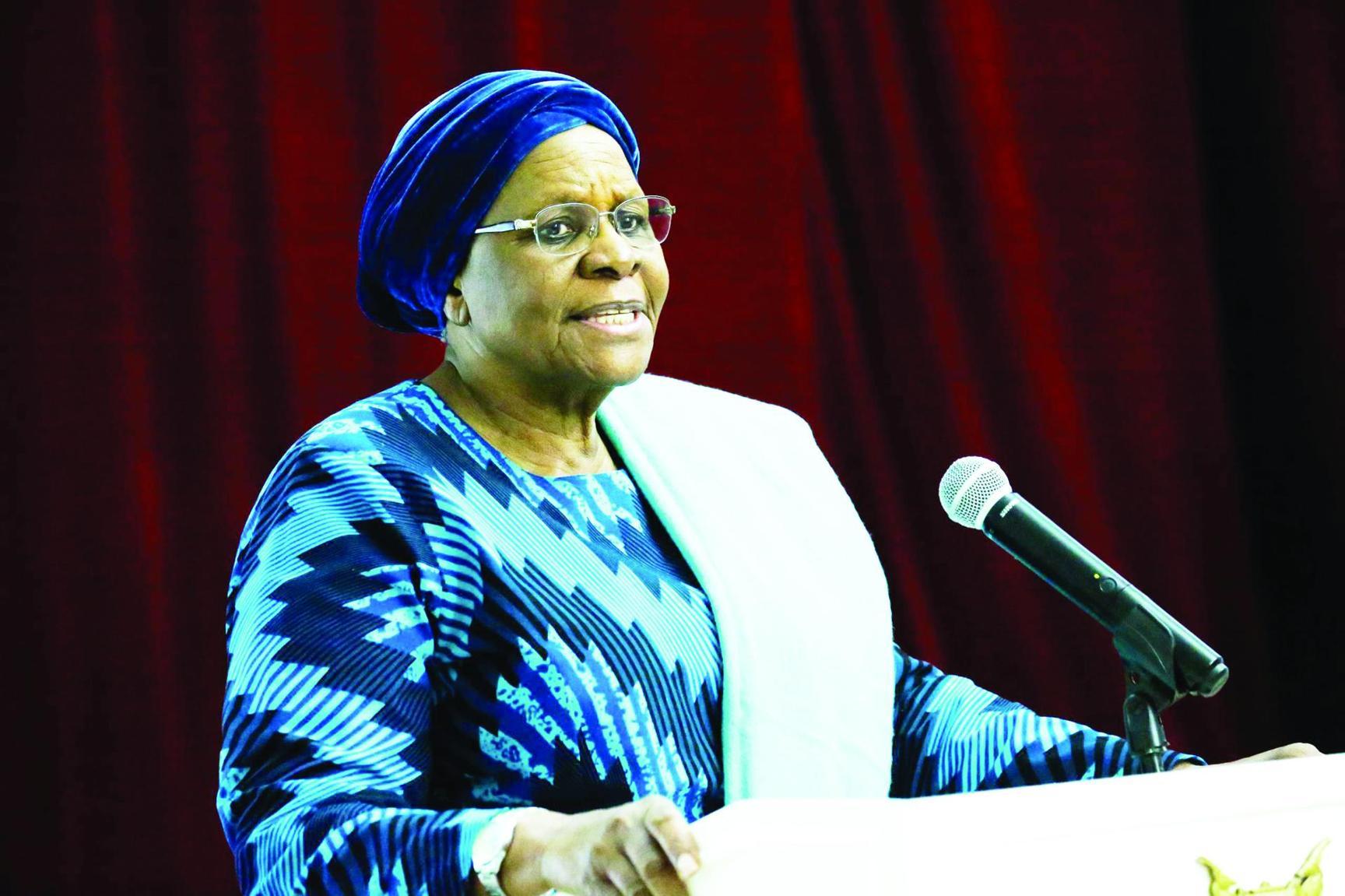Africa-Press – Namibia.
President Netumbo Nandi-Ndaitwah has reaffirmed government’s commitment to safeguarding press freedom in the country.
The 2025 World Press Freedom Index stated that Namibia is ranked second in Africa, with South Africa holding the pole position. This is a slight drop for Namibia from its previous position, where the country held the top spot in 2024 and 2023.
Other African countries which made it into the continent’s top 10 in desceding order include Cape Verde at third place (30th globally), Gabon (41st), Seychelles (45th), Mauritania (50th), Mauritius (51st), Ghana (52nd), Liberia (54th), and The Gambia (58th).
In her message marking World Press Freedom Day on Saturday, President Nandi-Ndaitwah assured Namibians that the rights of media practitioners will continue to be protected in the execution of their duties. She emphasised the importance of responsible, objective journalism that contributes to national development.
“As has been the tradition for the past 35 years, the policies of the Namibian government will continue to foster an environment in which media practitioners can operate freely and without fear of censorship or persecution while responsibly exploring the potential benefits of Artificial Intelligence,” she said.
Nandi-Ndaitwah highlighted the press’ evolving role in a digital era marked by rapid technological change.
“With the rise of technology and the disruptive potential of Artificial Intelligence, the press is expected to inform based on facts and educate the public, acknowledging its critical role in promoting good governance,” she stated. She noted that Namibia’s consistent high rankings in global press freedom indices reflect the government’s strong commitment to freedom of expression, as enshrined in Chapter 3 of the Namibian Constitution.
The President reiterated the government’s dedication to legislative reforms, such as the Access to Information Act (Act 8 of 2022), that is aimed at empowering citizens through access to information and ensuring government accountability.
“As technology becomes more embedded in media operations, AI introduces both opportunities and challenges. It can improve reporting through data analysis and content automation, but also introduces threats like disinformation, misinformation and cyberbullying,” she cautioned.
President Nandi-Ndaitwah used the day to urged journalists to refrain from spreading unverified information that could harm service delivery, media freedom, and democratic governance.
Meanwhile, Media Ombudsman John Nakuta urged the media to approach AI with caution. “AI has the potential to revolutionise journalism by enhancing fact-checking, automating routine tasks and enabling deeper investigative work. But it also poses major risks,” he warned.
He noted that AI-driven algorithms can amplify misinformation, produce deepfakes and support mass surveillance, all of which endanger the integrity of journalism and the safety of journalists.
“It is vital that we harness the benefits of AI while mitigating its risks, ensuring that it supports rather than undermines press freedom,” he said.
Nakuta described Namibia’s media freedom as a testament to the collective commitment of government and stakeholders to uphold free expression and a free press. “We celebrate this achievement and thank all those who help maintain this vital pillar of democracy,” he noted.
Associate Researcher at the Institute of Public Policy and Research (IPPR) Frederico Links said while Namibia continues to stand out as a leader in press freedom on the African continent, the country is not without challenges. He points to the lack of implementation of the Access to Information law, and recent cases of journalist intimidation as signs of a deteriorating media environment.
“We still are, you know, a beacon, but we really ought to be doing better,” he said.
Links added that it remains to be seen how the new administration will engage with the media, emphasising that media freedom is a key measure of democratic quality.
Asteria Ndjendja, who serves as editor of governmnet’s information publication Namibia Review, said it was important to safeguard editorial independence in both public and private newsrooms.
“While public media has a mandate to inform citizens about government programmes, it must do so with credibility and impartiality. Similarly, private media must continue to uphold ethical journalism and avoid sensationalism,” she noted.
Ndjendja said there is a need for continued investment in capacity-building, as many of the country’s journalists still require training in investigative journalism, media law, ethics and fact-checking, amongst others.
“Open engagement between media and government is essential, not to limit critical reporting, but to create an environment where journalists can work freely and criticism is embraced as a tool for growth, not seen as opposition,” she said.
Senior journalist Shelleygan Petersen said Namibia remains a safer place for journalists compared to many other African countries, but warned that press freedom is under pressure.
“In the age of artificial intelligence, which was this year’s theme, reporting in a brave new world, what AI means for press freedom and media freedom and for the media, that is also with everything going on, the mis- and disinformation. We saw a lot of videos going out that were generated by AI and were distributed through fake X accounts, through fake social media accounts,” she cautioned.
Selma Ikela, editor of One Africa TV, expressed concern over the global decline in press freedom. She said while Namibia is fortunate not to face the extreme cases of journalist killings or arrests seen in other parts of the world, access to information and economic pressure remain significant challenges.
“Access to information is a key issue. When government institutions or entities funded by the government fail to provide timely responses, it hampers the quality of journalism. This ultimately affects the country’s press freedom, as the media cannot operate effectively without reliable and timely information”, she stated.
Ikela also pointed out the economic pressures on the media, particularly in light of the economic downturn.
This year’s Press Freedom Day was held under the theme “Reporting in the Brave New World: The Impact of Artificial Intelligence on Press Freedom and the Media”.
For More News And Analysis About Namibia Follow Africa-Press






